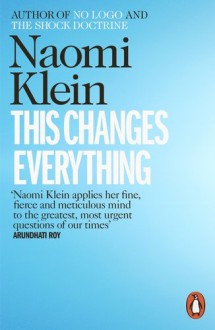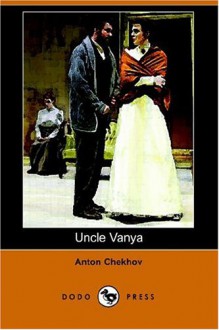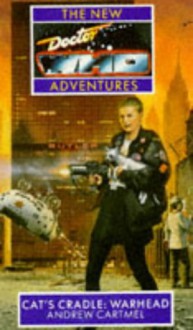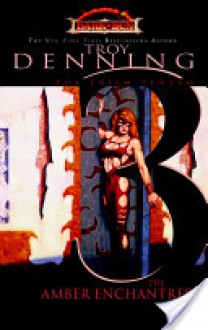
As I was reading the first part of this book, trawling through countless numbers of examples of how the fossil fuel industry is raping and pillaging our Earth, how our political leaders are in their pockets, and how were are constantly being bombarded with propaganda as to how climate change is really nothing to worry about while the true effects are being hidden behind beautiful pictures much like the slums of Dehli where during the Commonwealth Games, I simply couldn't help thinking about how we as a species are heading down a path that not only will end up destroying the planet, but also destroying that which we hold dear while ceding ever more power to the aristocrats that currently rule the planet. I guess a part of me was used to what I had read in Klein's two previous books No Logo and The Shock Doctrine where she basically tells us how bad things are yet offers no solutions that I expected that this book, with the enormity of the crisis that we are facing, would once again end with a completely hopeless note.
However this is not the case, particularly since we are talking about our future here. Simply by taking the strategy that Klein used previously would result in us giving up and basically eating and drinking because we might as well have fun now if the climate change is going to have such an impact upon our world that everything that we have managed to build for ourself is inevitably going to be destroyed. Instead Klein actually ends on a message of hope, dedicating half of the book to revealing how former enemies have united against a common foe and how mass movements are developing to push back against the corporate interests that currently dominate our thinking.
Mind you, there is still a pervasive belief amongst society that climate change first of all is somebody else's problem, or that it is rubbish (such as my uncle's statement that 'Climate Change is crap' without actually providing me with any evidence to support that view). The scary thing is not so much the climate change deniers but rather those who are basically apathetic towards the situation, those who accept that something must be done, but leave it to somebody else to solve the problem, or even believe the corporate propaganda that suggests that they are doing something, but not demanding any proof that anything is being done.
Personally I have encountered numerous climate change deniers in my time that simply make the statement 'climate change is crap' with the belief that that simple statement invalidates any argument that I might raise to the contrary. Mind you these people tend to resort to logical fallacies to support their arguments, or even just raise their voices to drown out any opposition simply because they are incapable of mounting any rational argument to the contrary. However when I confront such people I try to steer away from climate change per se and put the argument in perspective by point out the real costs of our out of control industrialised society such as the destruction of the natural environment:

the fact that in many places around the world our air is becoming toxic:

while our water systems are becoming undrinkable:

It was interesting to note that as I perused the responses to this book that there where quite a few positive reactions from readers, and one who had slammed it as another part of the left wing conspiracy to take his money and his freedom (which attracted a lot of harsh criticism). At first it seemed like Goodreads is full of people who actually care about the environment and desire to see a better world that isn't ruled by corporate interests, however I then realised that this is social media, and that when I jumped over to [book:Atlas Shrugged] I discovered that there was just as many positive responses to that book. The thing with social media is that you can pretty much filter out anything that you don't like so that the only things that you see are those that reinforce your worldview.
I still remember when I first became aware of the crisis that our modern uncontrolled capitalist society is creating. A friend of mine handed me a little booklet about the World Trade Organisation and suddenly my right wing individualist worldview was changed forever. Yet I have to admit that despite the fact that I don't own a car, and don't live a life where I am endlessly consuming, I know I could do much better. The reason I don't own a car has more to do with the fact that it is cheaper to use public transport (and the public transport in Melbourne is pretty good), and while I may not cycle through commodities as fast as humanly possible (while cluttering my house with useless stuff, though I am probably going to need to get a new phone since my current one is now over three years old and basically reaching the end of its life span), I still buy tea in takeaway containers (and maybe a coffee) and shop at the major supermarkets.
Yet I also see some positives happening as well. Okay, while people are putting ever more solar panels on the roof, when the current Liberal (conservative) government was elected they began to systematically cripple the renewable energy industry in favour of their mates in the coal industry. However while the fossil fuel industry was enjoying bumper profits for the past twenty odd years everything changed suddenly as the price of oil and iron ore completely collapsed. All of a suddenly it isn't profitable to look for new sources of oil, yet the companies that are on the verge of bankruptcy are forced to continue pumping as they simply cannot afford to shut down any wells, which is further exacerbating the collapse. This suddenly changes the picture as cost intensive extraction methods become less appealing, but untapped reserves are suddenly left in the ground (which means that some oil baron is unlikely to come along and start fraking your backyard). Mind you, everything that I said is probably invalid because I do own shares in a gold mine and an energy company (though the energy company did purchase some windfarms so they could say “hey, look at us, we care about the environment, we own a wind farm!”).
Anyway I think I will leave it at this, however if you are interested in reading more I have written a post on the subject on my blog.

 Log in with Facebook
Log in with Facebook 








